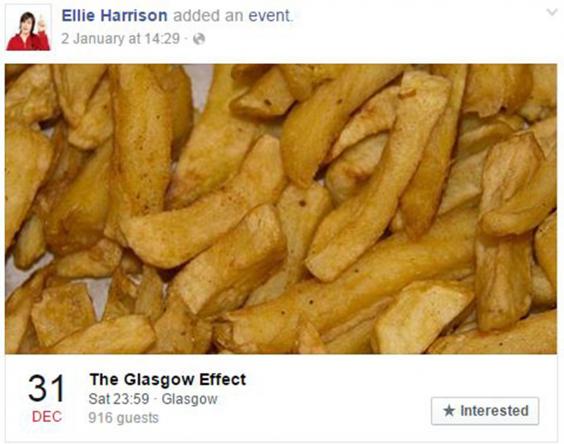Originally published on Flavia’s own blog The FlavNav
I am writing this blog in retrospect and I was looking at my calendar from February 2016 to remind me of what happened then to write the next post.
There’s a scheduled talk about The Glasgow Effect, the controversial project by artist Ellie Harrison that caused a stir in Scotland two years ago. This might seem disconnected from the central theme of my blog – my saga to defeat the UK Home Office and win the right to remain in Scotland long-term, but bear with me.
You can read about the project in various other blogs and media outlets: my main recommendations would be Jen McGregor’s blog, The Courier, here on The Wee Review. But please also read Ellie Harrison’s own account of the project on her website and draw your own conclusions about where you stand on the merits of the project itself.
Two years and another significant stooshie involving Creative Scotland on, there are two aspects of the project relevant to my life that I would like to pick up on: artists’ mobility and the funding process operating here.
I put in a Freedom of Information request to see Harrison’s original application to Creative Scotland and its assessment. At the application stage, the project was called Think Global, Act Local and it had at its core a rejection of the current model that values internationalisation of the arts, encouraging artists to take their work all over the world, participating in global events. Harrison’s stance is rooted, rightly so, in a deep concern for the environment, stating that the project is about reducing her own carbon footprint by refusing to travel outside of the (at the time of application) Strathclyde region. Honourable as this may sound, I began to think about what that meant for someone like me. It’s not too bad to lead a successful career as an artist in a city like Glasgow, fourth largest in the UK and flourishing with festivals, venues, partners, and opportunities. All things that do not exist (or do, to a much smaller extent) in my hometown.
In her post-project report at the start of 2017, Harrison called herself an ‘economic migrant’. I think it’s safe to assume she did not have to go through the motions of applying for a visa to move from England to Scotland (if only we’d won the Indyref, but alas…), so that made me feel uncomfortable. My problem with this aspect of The Glasgow Effect was how simplistic and one-dimensional it was. Here I stand, having to jump through all sorts of loops (which has now taken years of my life) to satisfy the powers that be that my work as a Brazilian artist [?] has value in Scotland, so forgive me if I feel discomfort and – yes – anger at hearing a successful British artist with a steady job, many gigs, and public support call herself an ‘economic migrant’ and claiming that you can be just as successful making work in your back garden.
The other thing that rubbed me up the wrong way was the funding process itself. As I understand, the Open Project funding guidelines clearly stated the funding should not be used for academic research purposes. Harrison declares on her application that the funding would be use to relieve her of teaching duties at the Duncan of Jordanstone College in Dundee to free up her time and save her the travel. It then emerged she would give the money to the college to hire her replacement, and that this application was submitted as part of her work as a lecturer/researcher. Though the college eventually withdrew support and granted her unpaid leave so she could keep the funding, Creative Scotland never quite clarified the breach of their own guidelines in this case. This happened when I was in the second term of my first year as a PhD student, thinking about how I was going to fund my research practice and being told with all letters that I would not be able to apply for Open Project funds. With an increasingly large number of artists straddling academia (out of necessity or genuine curiosity), maybe Creative Scotland should revise its guidelines, particularly after accidentally funding an academic research project.
The project shifted its shape, content, aims, many times throughout the year and I am still not entirely sure of its outcomes. What remains and every so often returns, however, is this wave of angst. I am still angry at Ellie Harrison. Not for creating the project, not for getting funded, but for having an excellent platform and not tackling deeper issues. For not actually challenging the educational system and the current industry models as she said she would, for missing an opportunity of speaking up for all the actual migrant artists whose work is measured solely on mobility and grandiose for the purposes of an Exceptional Talent visa. For not turning her privilege and position on its head and making a really radical decision of pointing out the flaws in the process. I kept expecting her to turn around and say that this was the game all along, but that didn’t happen. And now, just over two years on, I don’t know what Ellie is doing, but I’m still bending over backwards working more than I should to dig myself out of my overdraft, to pay for my PhD out of my own pocket, and trying to create internationally relevant work so I stand a smidge of a chance of remaining in Scotland.
